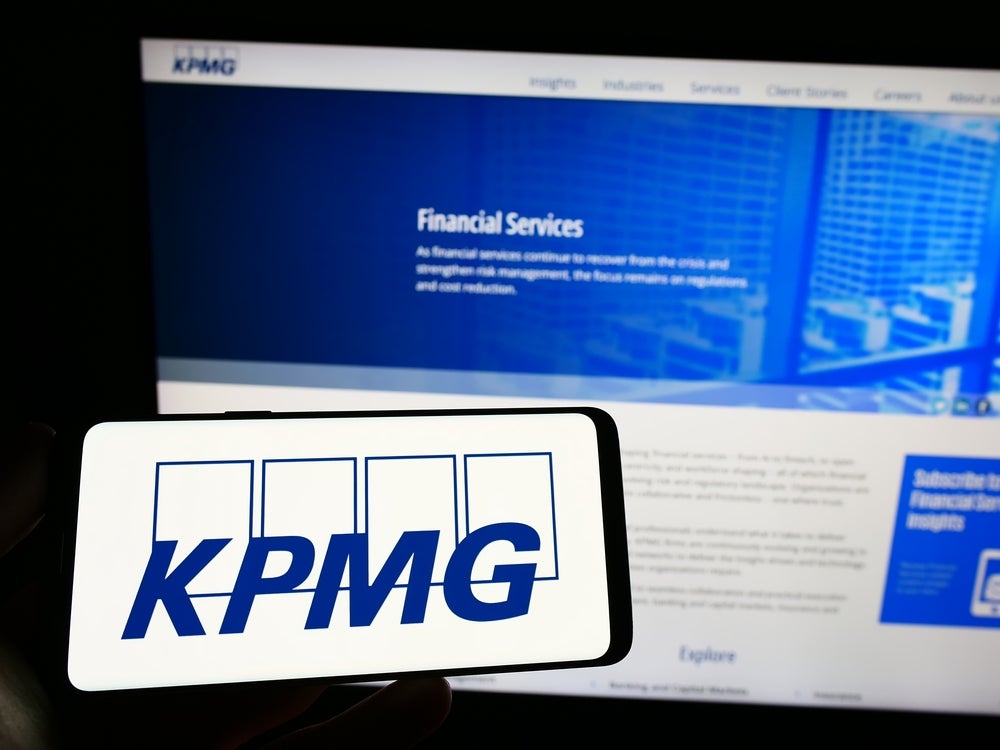
Banking & Payments DECODED
Previous edition: 22 Apr 2024
Share article
Get the full version straight to your inbox.
Exclusive access to our best-in-class data & intelligence
Subscribe now
How corporate digital identity technology powers growth
Within the financial services space, digital identity has proven transformative for retail banks by significantly enhancing customer experience and, consequently, commercial outcomes.

However, for corporate, commercial and investment banks, there have been unique challenges to contend with when it comes to its implementation, meaning these institutions are yet to grasp the opportunity to accelerate growth and, ultimately, profitability.
Why? Factors such as a lack of unified corporate identity standards, transparency and access to business information represent hurdles that, despite efforts including increasing headcount and building homegrown solutions, have been challenging for institutions to overcome.
Amidst a backdrop of economic turbulence, the time for change is now. Banks simply must overhaul their approach to the identification and verification of corporate and institutional clients with Corporate Digital Identity (CDI) if they are to maximise efficiency, satisfaction and power the path to growth.
Embrace CDI to revolutionise the KYC process
CDI revolutionises the process of Know Your Customer (KYC), with cost-effective and efficient output front of mind. Combining real-time data in the public domain with data acquired from clients privately, it delivers ready-made customer profiles into internal systems. This unlocks new operating models that can greatly enhance the speed and accuracy of onboarding, to the benefit of both the bank and the customer.
Crucially, with compliance in mind, CDI profiles also contain all attributes and documents needed to make and evidence sound customer decisions.
Until now, without a unified picture of customers, banks have been forced to build their own profiles from a mass of disparate data to conduct KYC. When approached manually, this is expensive, with processes open to the risk of human error. Banks have also tried, and often failed, to build their own internal solutions, as these complicated, long projects stall or halt due to limited resources, a lack of skills or competing business priorities.
The inefficiency of this means that many businesses wait up to 120 days for access to accounts and services, which often leads to them abandoning a friction-filled application process – costing a total of $3.3trn in lost revenue.
CDI, on the other hand, facilitates a smoother, faster onboarding process, which, in turn, allows banks to increase customer satisfaction, reduce abandon rates and reap a multitude of broader business benefits.
Putting the customer at the heart of the process for full benefits
Generated from the most up-to-date and authoritative public and private data sources, CDI ensures that banks are provided with a consistent and accurate view of the customer at all times. This view ensures robust regulatory compliance procedures that put customers at the heart of the experience. The improved customer experience that underpins its core leads to reducing abandon rates during the onboarding process by 20% to 40%, further driving profitability.
With complex and disparate information distilled into a digestible profile that persists through downstream activities, CDI brings clear benefits for a number of organisational areas.
From the front office – that sees instances of client outreach reduced from an average of five to two times with CDI - to compliance, embarking on this technology-led transformation has the potential to drive efficiencies that translate into $700m across a global bank over a five-year period.
While more than a third of this is projected to directly benefit operations, the cross-functional impact of CDI is undeniable, with 11% of the overall value expected to come within the front office, 14% in compliance, and almost 20% across technology and data.
Setting up for future growth gains
CDI marks a shift in the way corporate customer onboarding and identity verification is tackled that will alter the future – and supercharge gains at play – for banks and financial institutions the world over.
As well as improving compliance outcomes, it also allows for the building of processes that truly put revenue building opportunities and long-term growth front and centre.
As we are well aware, traditional KYC poses several significant challenges, making this evolution inevitable. In today’s market, where growth is paramount, every bank wants to do business faster and better – and it is CDI that will allow them to realise full potential in an impactful and sustainable way.
Alex Ford is President, North America at Encompass Corporation
Latest news

Wellington Management partners with Standard Chartered
Wellington Management, an independent asset manager, has formed a partnership with Standard Chartered Private Bank to provide the firm's Credit Total Return plan to customers in Singapore and Hong Kong.

JTC looking at FRTC-DE acquisition
The acquisition of First Republic Trust Company of Delaware (FRTC-DE), a fully owned subsidiary of JPMorgan Chase Bank, is being considered by global professional services company JTC, which is seeking to consolidate its spot as an independent supplier of trust administration services in the US.

Too many CFOs are becoming CEOs as talent gap grows
Two-fifths (41%) of business leaders believe CFOs moving into CEO positions is the main reason for the UK's current CFO shortage.

UK banking leaders upbeat on Q1 profitability and growth: KPMG
The UK’s largest retail bank, Lloyds, is the first of the major UK banks to report its first quarter earnings, on 24 April. Barclays follows on 25 April with NatWest on 26 April and HSBC on 30 April.

American Express Q1 earnings beat forecasts, revenue rises by 11% to $15.8bn
American Express first-quarter consolidated total revenues net of interest expense of $15.8bn is ahead by 11% y-o-y. The increase is primarily driven by higher net interest income and increased card member spending.

JROC releases proposals for the Future Entity for UK open banking
In January 2023, the Competition and Markets Authority announced the completion of the open banking Implementation Roadmap. This marked a pivotal milestone for open banking in the UK. It has delivered benefits to both businesses and consumers and contributed more than £4bn to the wider UK economy.

USFasterPaymentsCouncil releases report on QR Codes
The US Faster Payments Council has released a comprehensive analysis of QR code adoption. The council is a membership organisation devoted to advancing safe, easy-to-use faster payments in the US.

Spain card payments market to surpass $435 billion in 2024
The Spanish card payments market is forecast to grow by 8.9% to reach €402.6bn ($435.4bn) in 2024, supported by a constant consumer shift towards electronic payments, according to GlobalData, a leading data and analytics company.
In our previous edition

Banking & Payments Decoded
Augmented reality in banking is a poor attempt by incumbents to combat fintechs
19 Apr 2024

Banking & Payments Decoded
Knowledge sharing puts finance sector among best for cybersecurity - expert
18 Apr 2024

Banking & Payments Decoded
The advantages of a deal-by-deal private equity strategy
17 Apr 2024
Newsletters in other sectors
Aerospace, Defence & Security
Banking & Payments
Medical Devices
Travel and Tourism
Search companies, themes, reports, as well as actionable data & insights spanning 22 global industries
Access more premium companies when you subscribe to Explorer


